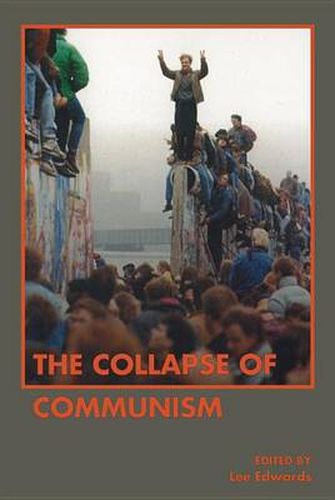Readings Newsletter
Become a Readings Member to make your shopping experience even easier.
Sign in or sign up for free!
You’re not far away from qualifying for FREE standard shipping within Australia
You’ve qualified for FREE standard shipping within Australia
The cart is loading…






Ten years after the fall of the Berlin Wall and eight years after the dissolution of the Soviet Union, experts continue to debate one of the most important political questions of the twentieth century-why did Communism collapse so suddenly? A comprehensive and often unexpected answer is provided in this unique volume of essays by the world’s leading authorities on Communism.Presidential adviser Zbignew Brzezinski discusses the critical role of policymakers like Ronald Reagan, Mikhail Gorbachev, and John Paul II in the demise of Communism. Richard Pipes and Martin Malia debate the importance of history and ideology. Robert Conquest analyzes the deleterious impact of the Stalin years, and Michael Novak delineates the missing element of faith in Communism. Andrzej Brzeski exposes the fatal flaws of Communist economics; Brian Crozier discusses why there was a cold war. Paul Hollander concludes with a consideration of who in the academy was right-and wrong-about Communism. These insightful essays suggest that a wide range of forces-political, economic, strategic, and religious-along with the indispensable role of the principled statesman and the brave dissident, brought about the collapse of Communism.
$9.00 standard shipping within Australia
FREE standard shipping within Australia for orders over $100.00
Express & International shipping calculated at checkout
Ten years after the fall of the Berlin Wall and eight years after the dissolution of the Soviet Union, experts continue to debate one of the most important political questions of the twentieth century-why did Communism collapse so suddenly? A comprehensive and often unexpected answer is provided in this unique volume of essays by the world’s leading authorities on Communism.Presidential adviser Zbignew Brzezinski discusses the critical role of policymakers like Ronald Reagan, Mikhail Gorbachev, and John Paul II in the demise of Communism. Richard Pipes and Martin Malia debate the importance of history and ideology. Robert Conquest analyzes the deleterious impact of the Stalin years, and Michael Novak delineates the missing element of faith in Communism. Andrzej Brzeski exposes the fatal flaws of Communist economics; Brian Crozier discusses why there was a cold war. Paul Hollander concludes with a consideration of who in the academy was right-and wrong-about Communism. These insightful essays suggest that a wide range of forces-political, economic, strategic, and religious-along with the indispensable role of the principled statesman and the brave dissident, brought about the collapse of Communism.